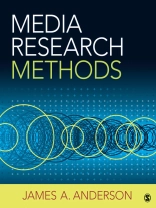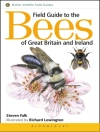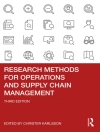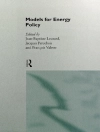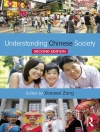Media Research Methods: Understanding Metric and Interpretive Approaches brings the insights of a senior theorist, methodologist, and critic to the classroom. Departing from the methods recipe approach, the text explains the reasons behind the methods and makes the connections to theory and knowledge production. Written in a conversational style, the book engages students and appeals to them as media consumers and users of research. The book takes the reader through each step of the research process, outlining the procedures, differences, strengths and limitations of metric, interpretive and the newer hybrid approaches. The text lays down a strong foundation in empirical research and problem solving, addressing metric topics of hypotheses, sampling, statistics, survey and experimental protocols and interpretive topics of textual analysis, coding, critical engagement and ethnography. A special chapter at the end of the book is a helpful guide for those readers who aspire to a research and analysis career.
Cuprins
Preface
Acknowledgments
Section I: Overview
1. Exploring the Mediascape
Chapter Preview
Introduction
Communication Domains
Understanding Methodological Differences
Moving On
Reflections
2. Mapping the Mediascape
Chapter Previw
Introduction
Four Corners of Analysis
Putting It Together: Friends in Social Networking Sites
Moving On
Reflections
3. Methods of Exploration: Asking Questions
Chapter Preview
Introduction: Primacy of the Problem
Preliminaries
The Process of Research
The Ethics of the Problem
Moving On
Reflections
4. Methods of Exploration: Finding Answers
Chapter Preview
Introduction
An Introduction to Empirical Methods
Cataloguing Methods
Considering Purposes Beyond Method
Moving On
Reflections
Section II: Foundations of Research Practice
5. From Concepts to Data
Chapter Preview
The Foundations of Argument in Research
Assumptions Prior to Data
Postassumptive Theory
Concepts and Constructs
Engagement, Evidence, Claim, and Trustworthiness
Moving On
Reflections
6. Research Questions and Hypotheses
Chapter Preview
Creating a Research Study
Research Questions and Hypotheses
Contemporary Examples
Implications for Developing Research Questions
Anticipating Institutional Review
Commentary on Methods and Implications
Moving On
Reflections
7. Literatures and Databases
Chapter Preview
Introduction
Metric, Interpretive, and Hybrid Literature Reviews
In the Beginning, For the Beginner
Conducting Professional, Problem-Based Literature Searches
The Ethics of Literature Reviews
Moving On
Reflections
Section III: Designing Protocols in Metric Research
8. Sampling
Chapter Preview
Introduction
Understanding Sampling
Sampling Methods
Moving On
Reflections
9. Statistics and Statistical Analysis
Chapter Preview
Introduction
Descriptive Statistics
Inferential Statistics
The Ethics of Analysis
Moving On
Reflections
10. Designing Surveys
Chapter Preview
Introduction
Measuring Properties: Developing Content
Methods of Data Collection
The Ethics of Survey Design
Moving On
Reflections
11. Protocols for Experiments
Chapter Preview
Introduction
Components of Experimental Design
Creating the Protocol
The Ethics of Experiments
Conclusion
Moving On
Reflections
Section IV: Conducting Research in the Interpretive Paradigm
12. Coding Text
Chapter Preview
Introduction to Coding Texts
Symbolic and Discursive Protocols
Elements of Content Protocols
Metric Coding
Interpretive Coding
Common Elements in Coding
Moving On
Reflections
13. Discursive Protocols: Creating Texts
Chapter Preview
Introduction
Producing and Coding Research Texts
Coding Texts: Pulling It All Together
Critical Question Checklist
Moving On
Reflections
14. Critical Interpretive Methods: Social Meanings and Media Texts, by Geoffrey Baym
Chapter Preview
Introduction
Goals
Identifying Issues and Texts
Selection
Textual Capture
Interpretive Reading
Systematic Analysis of Meaning Construction
Emergence and Confrontation
Finely Grained Examination
Crafting the Argument
Moving On
Reflections
15. Ethnographic Methods
Chapter Preview
Introduction
Adaptive Strategies in Ethnographic Research
The Ethics of Ethnography
Moving On
Reflections
16. An Excursion Into Writing
Chapter Preview
Introduction
Professional Writing
Background Practices: Foundational Reviews
Developing the Archive
Coding the Work
An Example From the Media Effects Archive
Closing Foundational Reviews
A Final Ethical Note
Reflections
Appendix A: A Short History of Media Innovations
Appendix B: One Hundred Studies
Glossary
References
Index
About the Author
Despre autor
James A. Anderson, Ph.D. (University of Iowa), Professor of Communication and Director of the Center for Communication and Community in the Department of Communication at the University of Utah. He is the author/co-author/editor of 17 books. His more than 100 chapters, articles, and research monographs are in the areas of family studies, cultural studies, media literacy, organizational studies, communicative ethics, methodology, and epistemology. Professor Anderson has been recognized as a “Master Teacher” by the Western States Communication Association and was recently given the Distinguished Scholar Award by the Broadcast Education Association. He is a Fellow of the International Communication Association. He is an active consultant in university administration, distance learning, and applied technology.
